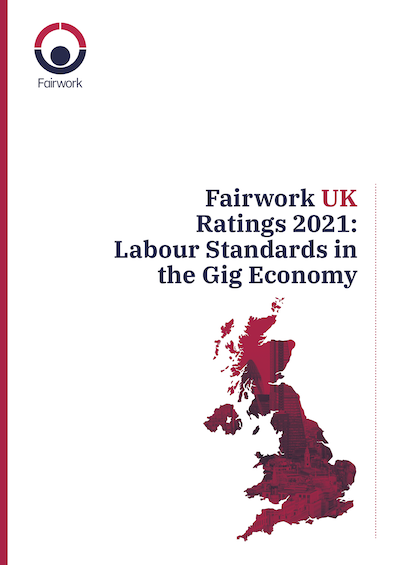
Dr Alessio Bertolini
Research Associate
Alessio Bertolini was a Postdoctoral Researcher at the Oxford Internet Institute for the project FairWork, where he investigated platform work in the both the Global North and Global South.

The platform economy has found a fertile ground for growth in the UK, which has a relatively deregulated labour market, porous employment protections and weak collective representation rights. In recent years, there has been a significant increase in non-standard forms of employment, including zero-hour contracts, agency work and self-employment. Buttressed by rapid digitalisation and high internet connectivity among the general population, platform work has proliferated. Although precise figures are difficult to come by, the ONS estimated that in 2017 at least 4.4% of the UK population, or about 2.8 million people, worked in the platform economy. The COVID-19 crisis is likely to have accelerated this growth trend, with lockdown measures pushing many people into online shopping and remote working.
This report presents the first set of Fairwork ratings for the UK and establishes a baseline on the country’s platform economy that will be updated on a yearly basis. Eleven platforms in the ride-hailing, food delivery, courier and domestic services sectors were evaluated against the five principles of Fairwork – pay, conditions, contracts, management, and representation – and given a score out of ten. The overall ratings suggest that much remains to be done to ensure minimum standards of fairness for UK-based platform workers, with the authors drawing attention to persistent gaps in worker protections and the need for stronger labour standards in the UK’s platform economy.
